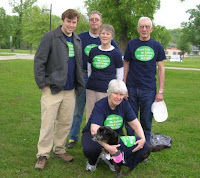I started a new project today, researching the route for my NAMI Camino.
I Walk For The Mind Of America
April 28 will be my fourth Walk to raise funds for NAMI (National Alliance on Mental Illness). I have been most gratified by the support from friends who help me give back to this organization that has made such a difference in my life, and hundreds of thousands of others.
History Of NAMI
Since its founding in 1979, by a bunch of uppity Wisconsin women who said There is no such thing as a schizophrenic family; we did NOT cause our children to have this devastating BIOLOGICAL disease, NAMI has been a beacon of light, education, advocacy, and support first to families and then to persons living with mental illness.
My History With NAMI
In my case, Peer to Peer, a 10 week class helped me to understand, come to accept, and learn skills to live with my illness, whatever they think it is this week.

I Walk For The Mind Of America
April 28 will be my fourth Walk to raise funds for NAMI (National Alliance on Mental Illness). I have been most gratified by the support from friends who help me give back to this organization that has made such a difference in my life, and hundreds of thousands of others.
History Of NAMI
Since its founding in 1979, by a bunch of uppity Wisconsin women who said There is no such thing as a schizophrenic family; we did NOT cause our children to have this devastating BIOLOGICAL disease, NAMI has been a beacon of light, education, advocacy, and support first to families and then to persons living with mental illness.
My History With NAMI
In my case, Peer to Peer, a 10 week class helped me to understand, come to accept, and learn skills to live with my illness, whatever they think it is this week.










